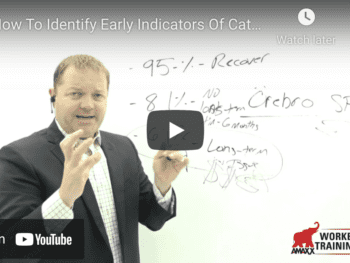
Most workers’ compensation benefits are not taxable. According to IRS Publication 525 Taxable and Nontaxable Income, amounts received as workers’ compensation for an occupational sickness or injury are fully exempt from tax if they are paid under a workers’ compensation act or a statute in the nature of a workers’ compensation act. The exemption also applies to survivors. The exemption, however, does not apply to retirement plan benefits receive based on age, length of service, or prior contributions to the plan, even if you retired because of an occupational sickness or injury.
Social Security and Railroad Retirement Benefits
Social Security disability benefits, when combined with other sources of income, may become taxable. If part of the workers’ compensation reduces social security or equivalent railroad retirement benefits received, that part is considered social security (or equivalent railroad retirement) benefits and may be taxable.
Return to Work
If an employee returns to work after qualifying for workers’ compensation, salary payments received for performing light duties are taxable as wages.
Click Link to Access Free PDF Download
Disability Pension
If a disability pension is paid under a statute that provides benefits only to employees with service-connected disabilities, part of it may be workers’ compensation. That part is exempt from tax. The rest of the pension, based on years of service, is taxable as pension or annuity income. If the employee dies, the part of the survivors’ benefit that is a continuation of the workers’ compensation is exempt from tax.
When a Court Reverses a Compensation Award
When a large award of workers compensation benefits is reversed by a court, what were untaxed workers compensation benefits become fully taxed ordinary income.
Structured Settlements
Tax codes create a significant financial benefit to injured employees through how structured settlements are not taxed. Congress passed the Periodic Payment Settlement Tax Act of 1982 (also known as Public Law 97-473) to provide severely injured liability claimants with tax relief. In 1986 Congress codified the structured settlement rules in sections 104(a)(2) and 130 of the Internal Revenue Code of 1986. Congress later expanded the law to cover workers’ compensation injuries as a part of the Taxpayer Relief Act of 1997.
With a structured settlement, the injured employee agrees with the self-insured employer (or work comp insurer) to release the employer of any further responsibility for the medical cost or indemnification obligation in exchange for a stream of periodic payments. The self-insured employer or insurer normally transfers the obligation to pay the employee to a life insurance company through the purchase of an annuity that meets the agreed to periodic payment schedule.
FREE DOWNLOAD: “Step-By-Step Process To Master Workers’ Comp In 90 Days”
Once the injured employee and the self-insured employer (or the workers’ compensation insurer) have agreed to settle the work comp claim in exchange for periodic payments, the full amount of the periodic payments are tax-free income to the employee. If the injured employee opts for a lump-sum settlement, the lump-sum is not taxed; but all future earnings (both interest and dividends) on the lump-sum are taxable to the employee. Hence, even if the employee is a skilled money manager (most injured employees are not), there is a large future income tax savings benefit to the periodic payments of a structured settlement.
The IRS is not totally benevolent with structured settlements. The IRS code states that in exchange for tax-free periodic payments, the injured employee agrees not to alter the periodic payments. The injured employee cannot increase or decrease the periodic payments, cannot change the agreed to the time frame of the periodic payments, and cannot delay or defer the periodic payments to a later date.

©2014 Amaxx Risk Solutions, Inc. All rights reserved under International Copyright Law.
Do not use this information without independent verification. All state laws vary. You should consult with your insurance broker, attorney, or qualified professional.
FREE DOWNLOAD: “Step-By-Step Process To Master Workers’ Comp In 90 Days”
















